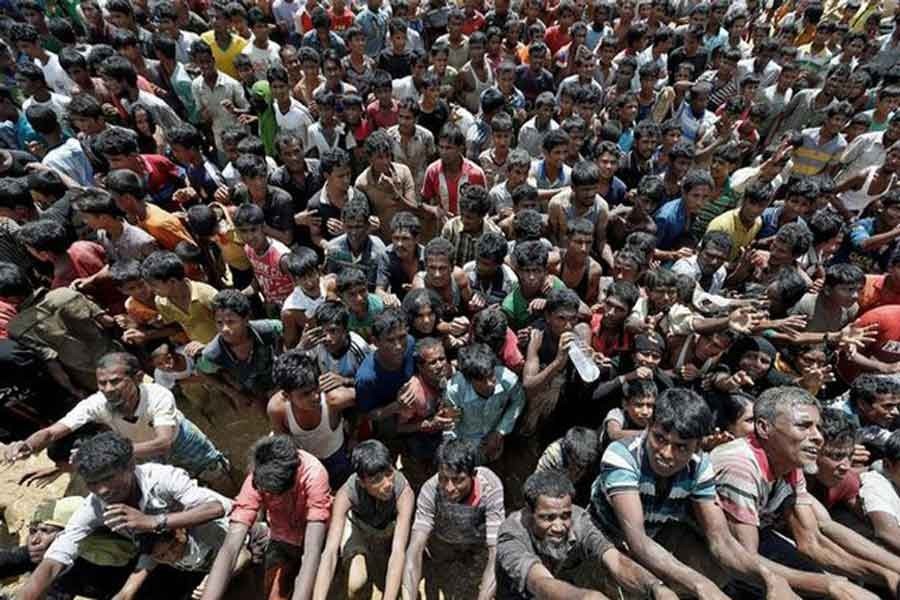Saturday marked the first anniversary of the latest mass exodus of the stateless Rohingya refugees from Myanmar's Rakhine state into Bangladesh. An ethnic cleansing resorted to by the Myanmar military and their cohorts forced them to leave their homeland. By now, over 700 thousand Rohingyas have arrived in Bangladesh since last August. Rohingyas have been repeatedly attacked and forced to flee from their homes in the course of history, especially since the middle of the 20th century, after Myanmar gained independence from Britain. As a consequence, over 1.0 million Rohingya refugees now languish in Bangladesh camps. Bangladesh has certainly displayed its humanitarian character by providing shelter to Myanmar's ethnic minority population, who have been brutalised in their homeland through rampant murders, rapes, burnings of houses and other inhuman acts. These refugees are still leading a helpless and uncertain life in the refugee camps of Cox's Bazaar. But there is no progress in their repatriation with dignity and safety, and ensuring justice for the crimes committed against them in Myanmar.
At the initial stage of the crisis, Prime Minister Sheikh Hasina laid emphasis on ensuring safe repatriation of the refugees and creating 'protected areas' for Rohingyas in the Rakhine state. Myanmar also signed an agreement with Bangladesh later on for taking back the refugees. But the conditions of that treaty were ambiguous, favouring the dubious agenda of the Myanmar government. Nothing has changed much on the ground since then and this is frustrating.
The Bangladesh foreign minister visited the Rakhine state at the beginning of August, where he inspected the progress in building shelters and houses for the Rohingyas. But the issue of granting Myanmar citizenship to the Rohingyas, which is essential for ensuring their secure and dignified existence there, has remained unresolved. Under the circumstances, the Rohingyas would naturally be disinterested to return voluntarily. In fact, it appears that the initiatives taken and the assurances given by Myanmar have been mere eyewashes. Apparently, Myanmar has been applying this technique in order to protect itself from outside pressures including international embargos.
Many countries, agencies and human rights organisations have termed the crimes committed by the Myanmar military against the Rohingya population 'genocide' and 'ethnic cleansing'. But ironically, the international community is yet to take any effective steps against these crimes against humanity. The global community and donor agencies have certainly come forward with humanitarian assistances. But it is not possible for a populous and resource-poor country like Bangladesh to bear the burden of 1.0 million Rohingya refugees for an indefinite period. The country has no other option now but to generate global public opinion in favour of the return of refugees with recognition of their citizenship and assurance of a safe future, as well as trial of the crimes committed against them. The global community also cannot forsake its responsibility in this regard. It would not be possible to force the Myanmar authorities to take back the refugees unless the global community exerts adequate pressure on them. Bangladesh is not in a position to wait for a solution till eternity.


